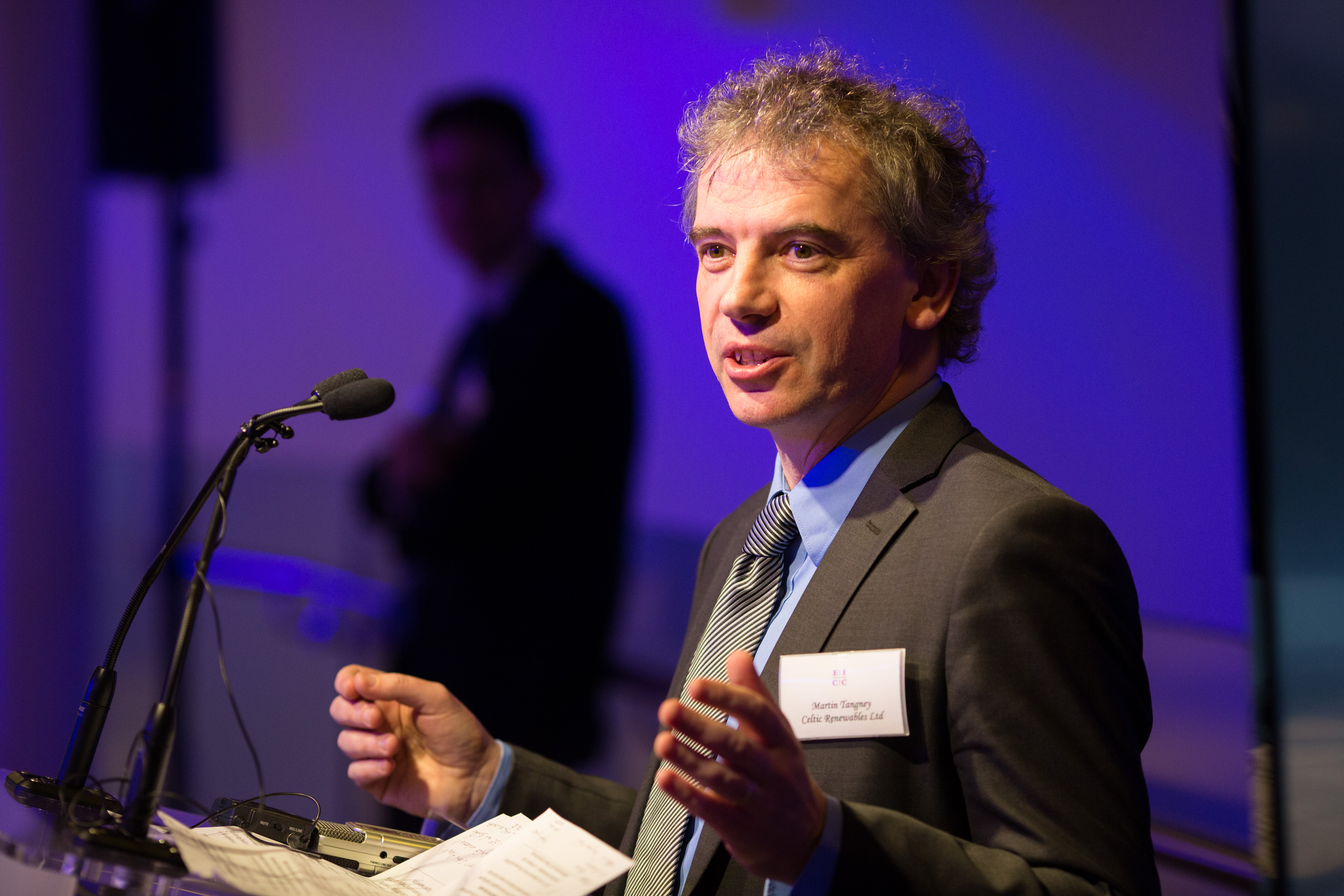
Sign up for our newsletter to receive the latest news and information from publics.bg
Publications

 21.04.2015
21.04.2015
Scotland has produced biofuel from whisky. Now this is the kind of success story that the media love, and Prof. Martin Tangney knows it too well. The reactions of the media range from excited reports to caricatures depicting petrol pumps boasting whisky brands, unanimously affirming that biofuel is indeed one of Scotland’s trademarks, next to the likes of Sean Connery, kilts and, of course, Scotch whisky itself.
Reviving an old technology
Tangney, founder of Celtic Renewables, readily tells how the company created as a spin-out of Edinburgh Napier University’s Biofuel Research Centre, has been pioneering the production of biofuel from residues of the whisky, namely the barley draff and pot ale – a liquid full of yeasts and copper residues from the brewing process. This is a new generation of biofuel which could effectively replace petrol. More than a million and a half litres of pot ale and thousands of tonnes of draff are thrown away every year which provides for an abundant fuel material source, capable of feeding a modern and innovative biofuel industry with the potential to bring GBP 100 m to the U.K. economy.
Despite being a relatively young company, Celtic Renewables is now valued at GBP 10 m. It managed to attract more than GBP 400,000 in private investment and twice as much from the British Department of Energy and Climate Change. What is more, in mid-March of this year Celtic Renewables has received GBP 500,000 in a new round of investment – GBP 250,000 from the Scottish Investment Bank, the investment arm of Scottish Enterprise, with a further GBP 250,000 equity stake acquired by an existing private investor.

Prof. Martin Tangney. Photo: Ashley Coombes Photography
Despite Tangney being Irish himself, he explains his professional predilection for Scotch whisky with the fact that Scottish distilleries are distributed over a smaller area, thus allowing for easier logistics and industrial deployment of the technology in the near future. In order to move to the next stage, Celtic Renewables has been partnering with the Tullibardine distillery which provides the waste material, and the Ghent-based Bio Base Europe Pilot Plant (BBEPP). The collaboration brought about the first samples of bio-butanol from waste – a ready to use petrol replacement which does not require engine modifications. Celtic Renewables used a process called the Acetone-Butanol-Ethanol (ABE) fermentation. The process was first developed in the UK a century ago, but died out in the years after the Second World War in competition with the petrochemical industry. The ABE fermentation process has potentially wide application in agriculture and brewing industries.
Why not youse it with your rakia as well, Tangney notes.
Before going global however, Celtic Renewables hopes to build its first U.K. demonstration facility at the Grangemouth petrochemical plant by 2018.
Bringing renewables closer to SMEs
The highly regulated whisky industry, accountable for about 25 percent of British exports, welcomes every prospect of energy savings. The reason is that each entrepreneur in this sector faces real-time expenses while waiting for the product to mature for at least three years, so that it could be labeled as Scotch whisky. The bureaucratic lingo regarding energy efficiency and renewables, however, proved too complicated and distanced from the purposes of the small and medium enterprises (SMEs). Enter the Scottish Biofuel Programme.
The aim of the Scottish Biofuel Programme is to provide impartial, independent and free of charge advice and support to SMEs, Jim Purves, project manager of the Programme, explains, describing it as the front door towards bioenergy for SMEs.
“They don’t have to go to a number of ministries and agencies. It is strictly about SMEs, not owned by large companies”, Purves precises.
Businesses can also apply for grants from the Biofuel Development Fund to identify, evaluate and develop biofuel opportunities. The grant, backed by the Scottish government, Scottish Enterprise and the EU Regional Development Fund, can contribute up to 100% of every given project.
The Programme can already present a number of successful projects, concerning most often CHP for industrial and public needs, with biomass as the dominating fuel – both locally produced and imported.
The Three Stills Company energy efficiency endeavor is one of the Programme's showcase projects. The Three Stills opted for a CHP installation worth GBP 3.25 m, realised through an ESCO contract. In the end the selected contractor received terrain, raw material and a customer for the new generation. The decreased waste production and energy consumption will bring about annual savings of GBP 280,000, estimates John Fordyce, founder of the Three Stills.
An improbable fuel material source

Photo: Argent Energy
After battling subsidised U.S. biofuel imports in the 2000s, Europe and Scotland in particular, boosted local production supported by a certificate trading scheme, already used in renewable energy. The inventive Brits have turned to an even more improbable source of fuel primary material than whisky, in the form of grease balls building up in sewers. Scottish company Argent Energy produces 60 million litres of biodiesel per year from sewage grease, used cooking oil by-products and animal tallow from the wastes of the meat processing industry.
To be continued on Publics.bg. This article was published in Bulgarian in the April issue of Utilities magazine.
Publics.bg and Utilities magazine would like to thank the U.K. Trade & Investment, which kindly organised the meetings with Prof. Martin Tangney, Jim Purves and John Fordyce, as well as the visit at the Argent Energy Motherwell biodiesel production facility.










 Interview
Interview 
 Full text
Full text Events
Events 


